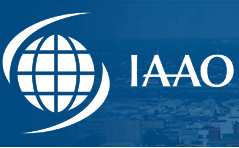Start Date
9-12-2016 8:45 AM
End Date
9-12-2016 9:30 AM
Description
Tax incentives for economic development are a source of continual and growing controversy. There is no scholarly consensus on their effectiveness in influencing business location and employment decisions, and it is clear that many incentives are poorly designed and do not yield benefits equivalent to their cost in forgone revenue. This had led advocacy groups, journalists, and legislators to call for their restriction or elimination. At the same time, there is widespread belief that some incentives can play a decisive role in a close choice on location or expansion—but it is not possible to identify which incentives have this effect. In the search for methods to increase economic growth and employment, even public officials who have been critical of tax competition seek to make use of every means available to encourage business expansion. This situation has led reform efforts to focus on increased oversight, tightened eligibility requirements, greater public disclosure of incentive provisions and costs, more vigorous enforcement of their conditions, and periodic legislative review. Criticism of incentive programs comes from all sides of the political spectrum. Those skeptical of business influence on government see incentives as tax favoritism producing uncertain economic benefit, while those who seek to promote free markets see incentives as an unwarranted attempt by the government to designate “winners and losers.” Journalists and advocacy groups spotlight programs that have failed to meet their objectives and those that have greatly exceeded their original cost estimates. Despite this criticism, new incentive agreements regularly break previous records and attract both positive and negative attention.
Recommended Citation
Youngman, Joan Esq., "Tax incentives for business location: Current controversies" (2016). IAAO Annual Legal Seminar. 9.
https://researchexchange.iaao.org/legal/legal16/sessions/9
Tax incentives for business location: Current controversies
Tax incentives for economic development are a source of continual and growing controversy. There is no scholarly consensus on their effectiveness in influencing business location and employment decisions, and it is clear that many incentives are poorly designed and do not yield benefits equivalent to their cost in forgone revenue. This had led advocacy groups, journalists, and legislators to call for their restriction or elimination. At the same time, there is widespread belief that some incentives can play a decisive role in a close choice on location or expansion—but it is not possible to identify which incentives have this effect. In the search for methods to increase economic growth and employment, even public officials who have been critical of tax competition seek to make use of every means available to encourage business expansion. This situation has led reform efforts to focus on increased oversight, tightened eligibility requirements, greater public disclosure of incentive provisions and costs, more vigorous enforcement of their conditions, and periodic legislative review. Criticism of incentive programs comes from all sides of the political spectrum. Those skeptical of business influence on government see incentives as tax favoritism producing uncertain economic benefit, while those who seek to promote free markets see incentives as an unwarranted attempt by the government to designate “winners and losers.” Journalists and advocacy groups spotlight programs that have failed to meet their objectives and those that have greatly exceeded their original cost estimates. Despite this criticism, new incentive agreements regularly break previous records and attract both positive and negative attention.


